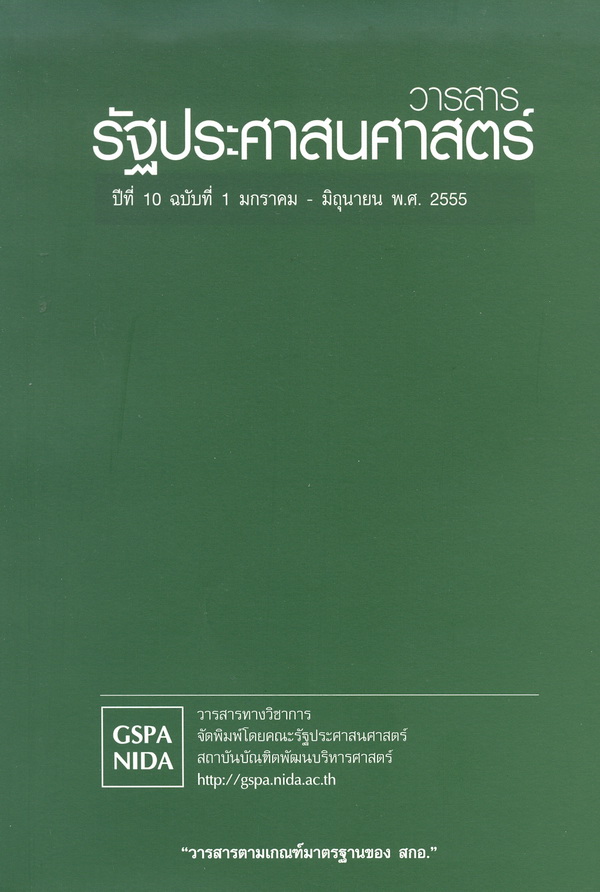Talent Retention in the Thai Public Sector
Keywords:
Human Resource Management (HRM), Talent Management, Engagement, RetentionAbstract
The article “Talent Retention in the Thai Public Sector” is an excerpt version of the research entitled “The Determinants of Talent Retention in the Thai Public Sector”. The main objective of this research was to investigate HR practices related to talent retention by employing the two models of HRM, namely “Utilitarian Instrumentalism” and “Developmental Humanism”. In addition, examination of talent engagement as the mediator between HR practices and talent retention was included. Apart from that, factors of personal characteristics, organizational characteristics and job characteristics have been integrated into the analytical model of this study. Those government offi cials who participated in the High Performance and Potential System (HiPPS) were defi ned as talented people in this study.
The “mixed methods” design was employed in this study. This method focuses on collecting and analyzing both quantitative and qualitative data in a single study. The findings from both methods were finally analyzed using parallel mixed data analysis. The findings revealed a low level of talent retention in the Thai public sector since only 34.1% of respondents revealed that they would work until retirement. Furthermore, HR practices, both utilitarian instrumentalism and developmental humanism, did not relate to talent retention. Only talent engagement and educational background of respondents were signifi cantly related to talent retention, while the rest of the variables did not reveal such relationships.



